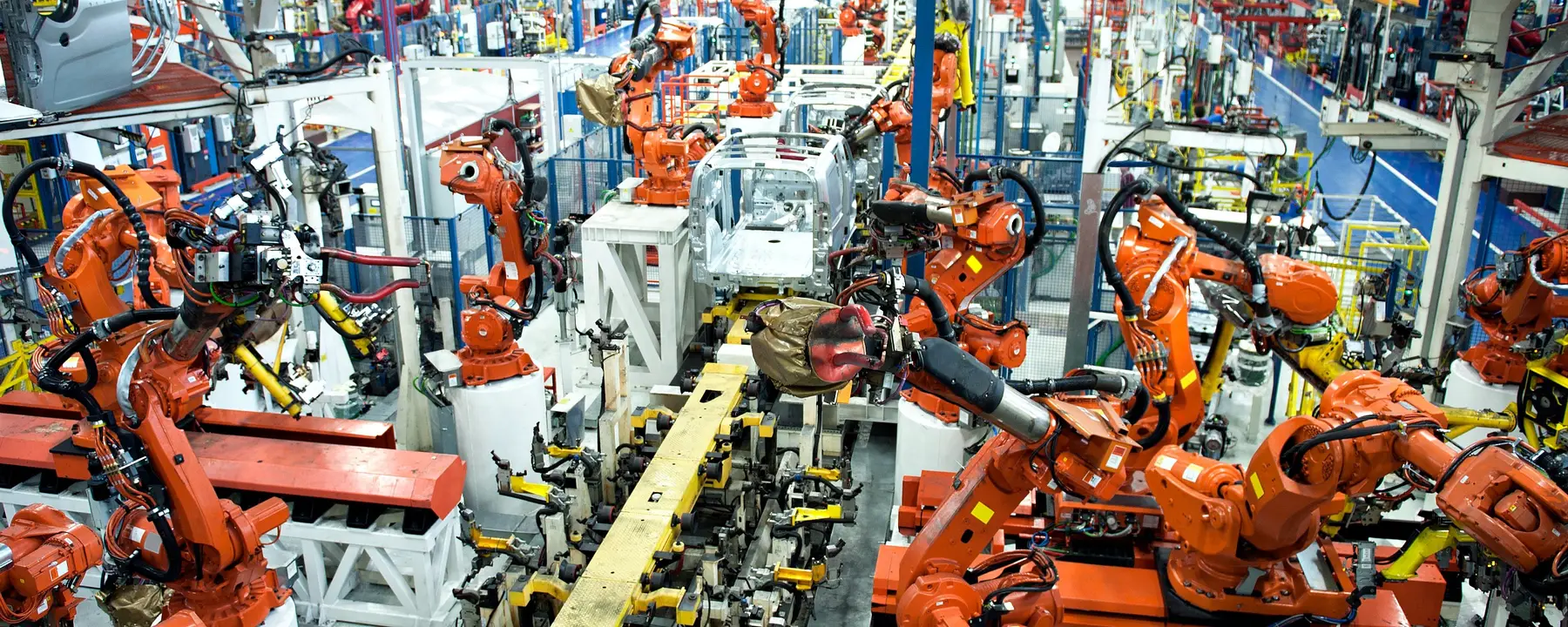Identifying infrastructure investment needs for advanced manufacturing technologies in the United States
Advanced manufacturing was identified by the Obama Administration as an essential component to reinvigorating America’s manufacturing competitiveness. Advanced manufacturing refers to knowledge- and technology-intensive production that pushes the boundaries of not only what can be produced but how it can be produced, drawing on gains in physical and material sciences, biotechnology, computing, advanced robotics, and artificial intelligence. It both feeds and prospers from achievements in research and development and has the potential to provide valued employment opportunities and strengthen communities.
In support of the White House’s advanced manufacturing initiative, and its own mission “to promote U.S. innovation and industrial competitiveness,” in 2014 the National Institute of Standards and Technology (NIST) convened an integrated team to investigate the infrastructure needs of advanced manufacturing. RTI was a key member of the team, providing economic analysis and research support.
We engaged with industry and quantified the needs for technology infrastructure—a term that encompasses the foundational suite of standards, measurement technologies, and general purpose technology that empowers and underlies all of industry. We analyzed how overcoming gaps in this infrastructure could support the efficient development and adoption of advanced manufacturing systems and production methods.
Identifying Common Challenges across Vital Growth Areas
The primary challenges in studying this expansive, complex subject were managing the scope of the project, keeping a clear line of sight to our research questions, and keeping our analysis methods aligned with data collection efforts.
Rather than delve into the specifics of product development, we needed to stay focused on common challenges—challenges in which market failure may be inhibiting the development of the necessary technology infrastructure to support all companies. The question we sought to answer was “What are the technology needs across all industry sectors, and why are companies not addressing these needs on their own?”
In collaboration with our client, we focused on four key areas integral to the growth of advanced manufacturing in the United States:
- Smart manufacturing
- Use of advanced robotics and automation
- Additive manufacturing, or 3-D printing
- Roll-to-roll manufacturing.
In each of these areas, we conducted more than 260 interviews with R&D directors, corporate executives, manufacturing engineers, industry associations, research centers, technology developers, and other key stakeholders in advanced manufacturing.
Industry Insights Derived from Stakeholder Interviews
Smart manufacturing, which, in simple terms, involves the integration of technological and human systems to produce data-driven decision making and performance optimization, can be found across a broad range of manufacturing industries—from food processing to electrical power generation to aerospace manufacturing. Through our interviews, we identified six primary infrastructure development opportunities with substantial economic potential:
- Managing digital data streams through quantitative models
- Sensing and monitoring
- Seamless transmission of digital data
- Advanced data and trend analysis
- Communicating data to decision making systems
- Determining and implementing required action (e.g., when to notify or engage humans).
As we examined the potential for robotics to drive growth, we found that the new era of automation in manufacturing goes beyond boosting production efficiencies and cutting labor costs. As robots become increasingly mobile and autonomous, they can operate in less structured environments. One challenge, however, is the need to establish standards and basic technology platforms for new robotics. Doing so at the individual manufacturer level would be cost-prohibitive.
Measurement technologies and standards are also needed to fortify the additive manufacturing industry—more commonly known as 3-D printing—by improving confidence in reproducibility and the reliability of raw materials. We found that additive manufacturing would also benefit from advancements in real-time measurement capabilities, design optimization tools and protocols, better modeling and simulation, improved surface finishing, and new mechanical testing procedures.
Roll-to-roll manufacturing—the process of manufacturing goods on a flexible substrate (such as a plastic film) as it moves from one roll to another—likewise needs standards, technology platforms, and other basic infrastructure to realize its market potential.
Billions in Potential Savings through Reduced Production Costs
Our economic impact estimates focused on the potential of these infrastructure improvements to reduce production costs and are, therefore, conservative measures. Investment in infrastructure would likely produce additional economic value through reduced research and development costs, improved product attributes, increased sales, and accelerating the introduction of new products to market.
Our estimates show that, conservatively,
- Investing in technology infrastructure to support smart manufacturing would generate an estimated $57.4 billion impact. The greatest potential for savings were found in labor and energy costs, with additional benefits to be realized in capital and materials.
- Advancements in robotics and automation could benefit U.S. manufacturing by as much as $40 billion annually. This factors some offset accrued through initial capital investment and reflects an average 5 percent reduction in production cost, driven primarily by material and labor savings.
- Addressing the technology infrastructure needs of the additive manufacturing industry could generate an impact of $4.1 billion per year. This would represent an 18 percent reduction in cost of goods sold, with the greatest impact coming in the form of a 27 percent reduction in labor costs.
- Roll-to-roll manufacturing could realize an estimated benefit of $353 million per year through investment in improved technology infrastructure. This would equate to about 15 percent of the total cost of roll-to-roll goods sold in 2015. The most significant benefits would come in reduction of labor and materials costs, which could be cut by 25 percent and 12 percent, respectively.
Our experts presented the results of our analyses to NIST in November 2016. The information will inform decisions about whether and how to invest scarce public funds and support the necessary research and development needed to strengthen advanced manufacturing in the United States.
- National Institute of Standards and Technology (NIST)


